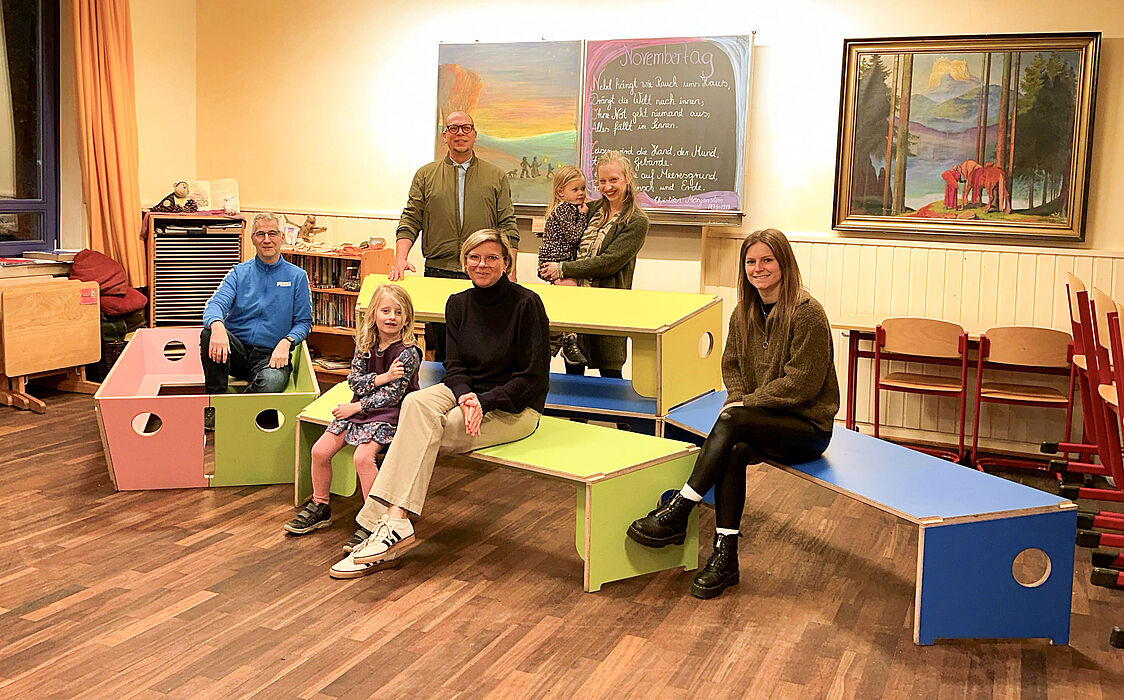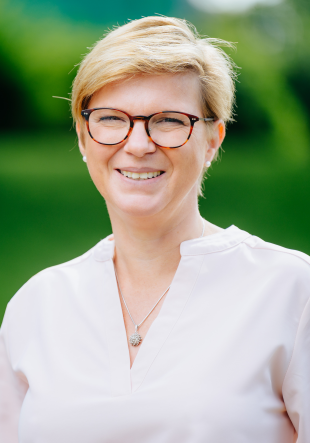In a new joint project, the members of the "besslab" movement, play and sports laboratory at Paderborn University, together with interior designer and carpenter Alexander Ostermann (Heimweh-Paderborn), teacher Frederike Schöningh from the Rudolf Steiner School Schloss Hamborn and Steffen Strasser from the Playparc company, have developed special seating furniture that combines movement and learning. The project participants are questioning the conventional way of sitting still in class and want to provide new impetus for active learning environments. Dr Nicole Satzinger and Yvonne Fögen from the group Childhood and Youth Research in Sport are providing scientific support for the implementation of the new benches, which are already in place at the Rudolf Steiner School. Their aim is to create a basis for movement-orientated learning: "The practical transfer will specifically promote movement in everyday school, all-day and daycare life," says Satzinger. The partners work hand in hand to enable children to have an active and healthy time at school.
"The results of recent studies show that a lack of physical activity in childhood and adolescence is a significant risk factor for the development of various health impairments. Interruptions to sitting time and targeted activities can promote attention during lessons," Satzinger continues. The project initially focussed on the functionality of the benches. "Maximum flexibility and space-saving storage were important to us," says Alexander Ostermann. Thanks to the modular design, the benches are versatile and suitable for kindergartens, schools and all-day facilities. The benches can be reorganised for different types of work. In addition to the circular arrangement for group work and discussions, standing desks are provided for breaks in sitting as well as group and reading corners for different forms of socialising and learning. The ergonomic design of the benches with inclined seats supports an active and ergonomic sitting posture. "Thanks to numerous studies, we know that movement in the classroom promotes pupils' attention and that movement and learning must be considered together," says Satzinger.
Schöningh lists other advantages that are of great importance: "Customisable benches make it easier to institution different group and social forms, which supports so-called classroom management. Pedagogical benefits result from the promotion of a movement-orientated room design, which in turn supports children's enjoyment of movement and creates an environment that promotes learning. Overall, a significant increase in pupil motivation can be observed." The flexible furniture takes into account the different learning and working needs of the children and young people by enabling them to work independently. The use of flexible seating thus sponsors the creation of an optimised learning atmosphere, which is characterised by improved use of space and flexible adaptation of the learning environment to different teaching and social forms. Once the pilot phase of the project has been completed, the benches will be used in other schools, as Strasser points out.
This text was translated automatically.


